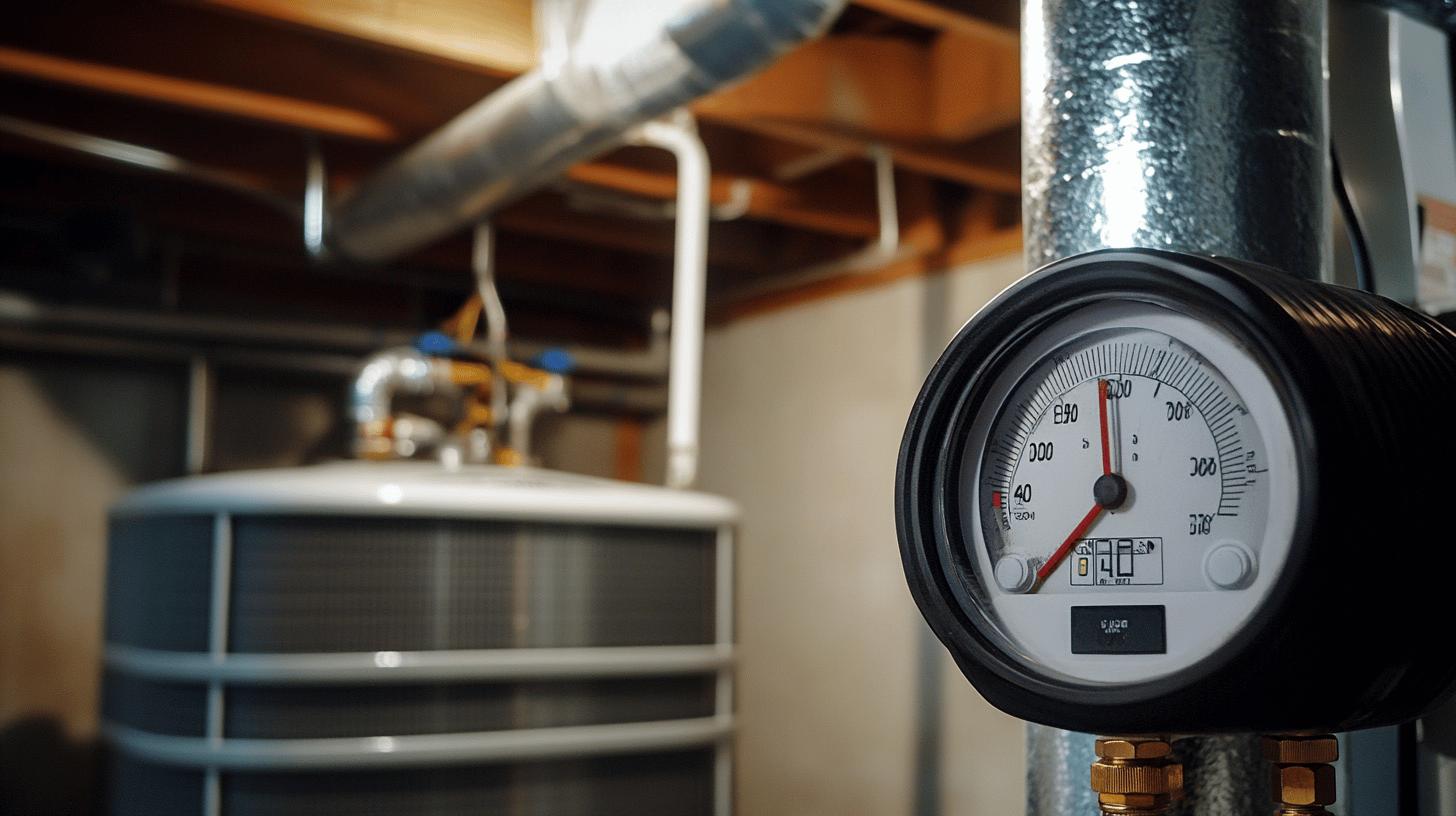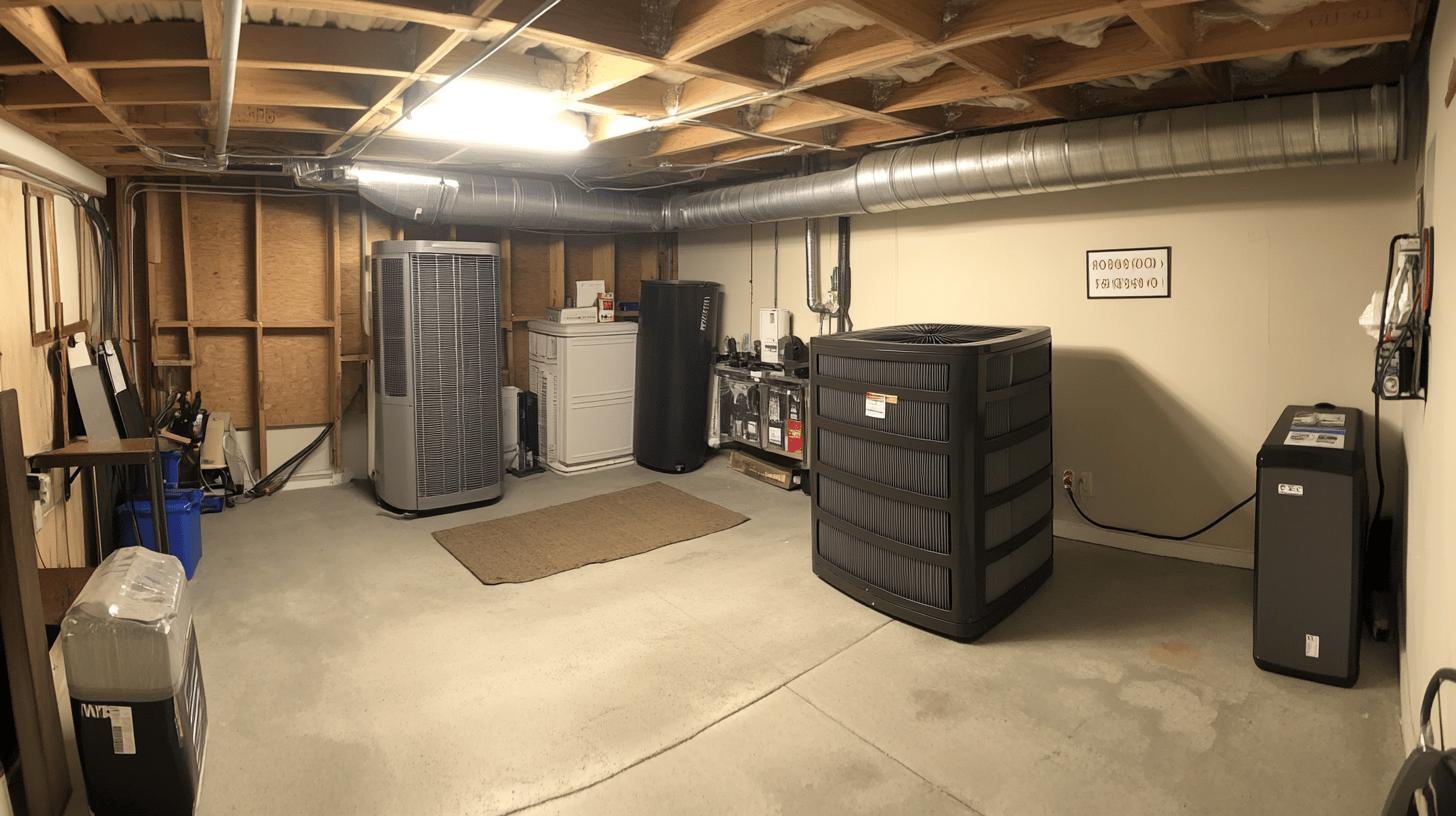When you think about HVAC systems, cooling might be the first thing that comes to mind. But do HVAC systems dehumidify air effectively? While air conditioners do remove some moisture from the air as they cool, their ability to achieve optimal humidity levels—especially in very humid conditions—is often limited. Understanding how HVAC systems handle humidity can shed light on when additional dehumidification might be necessary and how this can impact both the efficiency of your system and the comfort of your home. Let’s explore the ins and outs of HVAC systems and their role in managing humidity.
Do HVAC Systems Dehumidify and How?
HVAC systems, including air conditioners, have dual purposes: cooling and dehumidifying air. But do HVAC systems dehumidify effectively? Not entirely. While they remove some moisture as they cool, their primary goal is temperature control. Dehumidification occurs when warm air passes over cooling coils, making moisture condense and drain away. However, in very humid areas, air conditioners alone might struggle to maintain ideal indoor moisture levels. This can lead to more energy use and system wear.
Factors influencing effectiveness include:
- Air temperature settings
- Indoor humidity levels
- Duration of system operation
- HVAC system design
- Geographic climate conditions
Even though HVAC systems contribute to dehumidifying, they may fall short in very humid environments. When the air conditioner reaches the desired temperature, it shuts off, possibly leaving residual humidity. This issue is more pronounced in areas with high moisture levels. So, while HVAC systems help with moisture control, they might need support from dehumidifiers in particularly humid regions to ensure optimal comfort and efficiency.
When to Add a Dehumidifier to Your HVAC System

Sticky or clammy conditions in your home often signal poor dehumidification by your HVAC system. If it feels hotter than expected, even with the air conditioner running, the humidity might be too high. High humidity can make it feel up to 10° hotter, affecting comfort and possibly causing health risks.
Benefits of Whole-House Dehumidifiers
Whole-house dehumidifiers keep indoor humidity levels between 30% and 50%. This range ensures comfort and prevents mold and allergens. Integrated with your HVAC system, they remove excess moisture without affecting air conditioning. This setup reduces the HVAC workload, potentially cutting energy use and extending the system’s lifespan.
| Symptom | Solution |
|---|---|
| Persistent clammy feeling | Install a whole-house dehumidifier |
| AC running constantly, little effect | Add dehumidification for efficiency |
| Musty odors or visible mold | Use a dehumidifier to control moisture |
Recognizing these signs helps you decide when to enhance your HVAC system with a dehumidifier for a comfortable, healthy home.
Comparing HVAC Dehumidification to Standalone Units
Do HVAC dehumidifiers outperform standalone units? Generally, yes. Integrated into HVAC systems, whole-house dehumidifiers remove excess moisture efficiently, maintaining ideal humidity levels. These units work with existing ductwork to distribute dry air. This integration saves energy and reduces maintenance needs, helping maintain a consistent indoor climate and extend the HVAC lifespan.
- Installation complexity: Whole-house dehumidifiers need professional installation, while portable units are DIY-friendly.
- Maintenance requirements: Standalone units demand frequent emptying and filter changes; HVAC-integrated systems need less frequent but comprehensive maintenance.
- Energy consumption: Integrated systems are more energy-efficient, working with HVAC systems, while standalone units often use more energy independently.
- Space and portability: Portable units offer flexibility for humid areas, while integrated systems are stationary with comprehensive coverage.
Choosing between HVAC-integrated and standalone dehumidifiers depends on home size and local climate. Larger homes in humid areas benefit from integrated systems for consistent control. Smaller spaces with varying humidity levels might prefer portable units for flexibility.
Enhancing HVAC Systems for Better Dehumidification

Do advanced HVAC systems dehumidify air well? Yes, especially those with integrated humidity control features. These systems balance temperature and moisture efficiently. Key components like humidity sensors monitor conditions and adjust the system to maintain desired humidity levels. Optimizing these systems enhances comfort and efficiency.
Regular Maintenance Practices
To improve your HVAC system’s humidity control, regular maintenance is key. Essential tasks include:
- Clean or replace air filters.
- Inspect and clean ducts
- Check humidity sensor functionality.
- Calibrate thermostat settings
- Schedule professional HVAC inspections.
- Monitor indoor humidity levels.
Smart technology, like smart thermostats, offers advantages in managing indoor climate. These devices maintain optimal humidity and temperature settings, ensuring efficiency. By providing real-time data and remote access, smart thermostats allow precise HVAC control, leading to improved dehumidification and energy savings. These enhancements help your HVAC system manage humidity better, promoting a healthier and more comfortable environment.
The Impact of Humidity on HVAC Performance and Health
Does humidity affect HVAC performance? Yes, high humidity increases the HVAC workload. Air conditioners work harder to remove excess moisture, leading to more wear and tear. This strain often results in higher energy use, as systems run longer to reach the desired temperature. Over time, this can shorten the HVAC’s lifespan, requiring more repairs or replacements. In consistently humid areas, homeowners may notice longer AC run times, higher utility bills, and potential system fatigue.
Improper humidity also impacts health. High humidity creates conditions for mold growth and increases allergens. When indoor humidity rises above 40% to 60%, discomfort increases. This environment affects comfort and poses health risks, especially for those with respiratory issues or allergies. Mold thrives in humid conditions, releasing allergenic spores. Dust mites, another allergen, also flourish in moist environments, exacerbating health problems. Keeping optimal humidity is crucial for comfort and health, ensuring a pleasant living space and lowering moisture-related health risks.
Final Words
So, do HVAC systems dehumidify? We checked how vital it is for maintaining a comfortable home environment. While these systems can partially remove moisture, their main job is cooling, making them less effective in very humid conditions. Adding a dehumidifier enhances their performance, ensuring consistent humidity levels and protecting your home and health.
Deciding between HVAC-integrated and standalone dehumidifiers depends on your specific needs, such as home size and climate. Improving HVAC efficiency through advanced technology and regular maintenance can optimize moisture control. Remember, managing humidity not only extends the HVAC lifespan but also promotes healthier living spaces.
FAQ
Do HVAC systems dehumidify?
HVAC systems can partially dehumidify air as they cool it, but they primarily focus on cooling and may not always control humidity effectively, especially in very humid conditions.
Do HVAC systems dehumidify, and their air conditioners work?
Dehumidifiers in air conditioners function by pulling warm air over a cold coil, removing moisture from the air as it cools, which then drips into a drainage pan.
Do HVAC systems dehumidify and heat the air conditioners?
Air conditioners do not dehumidify when heating. Their dehumidification feature works only during cooling modes, as the cooling coils must be cold enough to cause condensation.
Do HVAC systems dehumidify by reducing humidity?
HVAC systems reduce humidity but not as effectively as dedicated dehumidifiers. Their primary purpose is cooling, with dehumidification as a secondary benefit.
When should I add a dehumidifier to my HVAC system?
You should add a dehumidifier if indoor air feels sticky or clammy, indicating excessive humidity. A whole-house unit can maintain more comfortable and healthier humidity levels.

